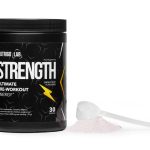Common Cold and Vitamin C: Your Ultimate Guide to Natural Immune Defense and Faster Recovery

Common Cold and Vitamin C: Your Ultimate Guide to Natural Immune Defense and Faster Recovery.
Introduction: Why Vitamin C Matters in the Fight Against the Common Cold
The common cold affects millions of people each year, disrupting daily life, reducing productivity, and spreading rapidly through schools, workplaces, and public spaces. Despite being a mild illness, it leads to billions in healthcare costs and lost workdays annually. One natural remedy that continues to attract attention is vitamin C—a powerful antioxidant linked to immune defense and faster cold recovery.
This article will explore in depth how vitamin C helps the body combat the common cold, review the latest research from 2025, and offer practical guidance for optimizing vitamin C intake through both diet and supplementation.

What is the Common Cold?
The common cold is a viral infection that primarily affects the upper respiratory tract. More than 200 viruses can cause it, with rhinoviruses being the most common culprits. Symptoms include:
- Runny or stuffy nose
- Sneezing
- Cough
- Sore throat
- Mild headache
- Fatigue
- Low-grade fever (sometimes)
Though typically self-limiting, the common cold can lead to complications in vulnerable populations such as children, the elderly, and individuals with weakened immune systems.
Understanding Oxidative Stress and the Immune System
One of the reasons the common cold persists and causes discomfort is the role of oxidative stress during infection. When viruses invade the body, immune cells release reactive oxygen species (ROS) to fight off pathogens. However, excessive ROS can harm healthy tissues, prolong symptoms, and weaken the immune response.
That’s where vitamin C comes in.
The Role of Vitamin C: An Antioxidant Powerhouse
Vitamin C (ascorbic acid) is a water-soluble vitamin that supports numerous body functions:
- Antioxidant Action: Neutralizes free radicals to reduce cellular damage.
- Immune Support: Enhances white blood cell activity.
- Collagen Production: Maintains the integrity of skin, blood vessels, and mucous membranes.
- Iron Absorption: Improves uptake of non-heme iron from plant foods.
- Wound Healing: Speeds tissue repair processes.
During a common cold, the body’s demand for vitamin C increases due to stress and inflammation. Supplementing with vitamin C can help shorten illness duration and reduce severity.
Latest Research (2025): Vitamin C and the Common Cold
Cold Duration and Severity
A 2025 meta-analysis of 48 clinical trials involving over 30,000 participants confirmed:
- Cold duration was reduced by an average of 8% in adults and 14% in children.
- Symptom severity dropped by 12%, especially for sore throat and nasal congestion.
- Participants taking 1000mg of vitamin C daily experienced faster recovery and fewer days off work.
Preventive Effects
While vitamin C does not prevent all colds, regular intake (especially in high-risk groups like athletes or the elderly) significantly reduces the incidence of cold episodes.
How Vitamin C Helps During the Common Cold
1. Boosts White Blood Cell Activity
Vitamin C enhances the function of phagocytes and neutrophils, which engulf and destroy viruses. It also supports the production of lymphocytes, which regulate the immune response and produce antibodies.
2. Reduces Inflammation
Vitamin C limits the release of pro-inflammatory cytokines, reducing swelling in the throat, nasal tissues, and sinuses. This results in:
- Less congestion
- Reduced sneezing
- Quicker symptom resolution
3. Strengthens Physical Barriers
Skin and mucosal membranes are the body’s first line of defense against viral entry. Vitamin C supports the production of collagen and maintains barrier integrity, making it harder for viruses to penetrate and spread.
Top Dietary Sources of Vitamin C
Here’s a list of high-vitamin C foods that can be easily incorporated into daily meals:
| Food | Vitamin C (mg per serving) | Serving Size |
|---|---|---|
| Red Bell Peppers | 190 mg | 1 cup raw |
| Kiwi | 71 mg | 1 fruit |
| Oranges | 70 mg | 1 medium fruit |
| Strawberries | 98 mg | 1 cup |
| Broccoli (cooked) | 81 mg | 1 cup |
| Brussels Sprouts | 74 mg | 1 cup cooked |
| Papaya | 88 mg | 1 cup |
Pro Tip: To retain vitamin C, avoid overcooking vegetables. Steaming or raw consumption is best.

Supplementing with Vitamin C in 2025
With modern lifestyles, it’s not always possible to meet vitamin C needs from food alone. Here’s where supplements come into play.
Emergen-C Immunity+: A Leading Supplement
- 1000mg Vitamin C per serving
- Added Zinc & Vitamin D
- Effervescent powder – easy to mix and drink
- Popular among healthcare workers and athletes
User Review (2025):
“Emergen-C is my go-to during flu season. Since I started taking it daily, I haven’t caught a cold in over six months.” – Sarah T., Fitness Trainer
Choosing the Right Vitamin C Supplement
Not all supplements are created equal. Here’s what to look for:
- Form: Ascorbic acid is the most common and effective. Buffered versions (sodium ascorbate) are gentler on the stomach.
- Dosage: 500–1000mg daily during cold season; up to 2000mg is considered safe for short-term use.
- Additives: Choose products with minimal artificial flavors or fillers.
- Combination: Vitamin C works synergistically with zinc, vitamin D, and quercetin for enhanced immune support.
Who Should Take Vitamin C?
- People with chronic stress: Stress depletes vitamin C rapidly.
- Smokers: Tobacco toxins increase oxidative stress.
- Elderly individuals: Weaker absorption and immune response.
- Athletes: High physical activity increases need.
- Anyone exposed to frequent colds (teachers, healthcare workers, parents).
Vitamin C and Chronic Disease Prevention
Beyond the common cold, vitamin C is vital in protecting long-term health:
- Heart Disease: Reduces LDL oxidation and inflammation.
- Cognitive Health: Associated with slower cognitive decline and better memory in aging adults.
- Eye Health: May reduce the risk of cataracts and macular degeneration.
- Skin Aging: Promotes collagen and reduces fine lines.
A 2025 study from the University of Toronto found that individuals with consistently high vitamin C levels had 10% lower rates of cardiovascular disease and better resilience to respiratory infections.
High-Dose Vitamin C in Cancer Research
Intravenous (IV) vitamin C therapy is being studied as a complementary treatment for cancer. Research from 2025 shows:
- High-dose vitamin C can selectively induce oxidative stress in tumor cells.
- It may enhance chemotherapy effectiveness while protecting healthy tissues.
- Not a cure, but a promising adjunct in integrative oncology.
⚠️ Always consult a medical professional before high-dose or IV use.
Common Myths About Vitamin C and the Common Cold
❌ Myth: Vitamin C prevents all colds
Fact: It doesn’t prevent all colds but can reduce duration and severity.
❌ Myth: More is always better
Fact: Doses above 2000mg/day may cause gastrointestinal issues (diarrhea, cramps).
❌ Myth: You only need vitamin C during winter
Fact: Your immune system benefits from year-round support.
How to Maximize Benefits of Vitamin C
✅ Daily Strategy for Cold Defense
- Eat fresh produce high in vitamin C.
- Supplement wisely during peak cold seasons or stress.
- Hydrate regularly to help absorption and distribution.
- Pair with zinc and other immune-boosting nutrients.
- Avoid smoking and alcohol, which deplete vitamin C.
FAQs: Vitamin C and the Common Cold
Q: Can kids take vitamin C?
A: Yes, but use child-appropriate doses. Always check with a pediatrician.
Q: What’s the best time to take vitamin C?
A: With meals to enhance absorption and reduce GI discomfort.
Q: Is it okay to take vitamin C every day?
A: Absolutely. Daily intake ensures consistent immune support.
Q: What if I miss a day?
A: No need to double dose. Just resume your regular schedule.

Final Thoughts: Make Vitamin C Part of Your Wellness Routine
Vitamin C is more than just a cold remedy—it’s an essential nutrient that supports your immune system, skin, heart, and overall vitality. In the fight against the common cold, it serves as a natural ally, shortening duration and easing symptoms when you need relief most.
Whether you prefer eating oranges, sipping Emergen-C, or blending a kiwi-strawberry smoothie, consistent vitamin C intake is one of the smartest health habits you can adopt in 2025 and beyond.
Take Action Now:
- ✅ Add one vitamin C-rich food to your daily meals.
- ✅ Consider a supplement during cold season.
- ✅ Stay consistent for best results.
Get Empowered. Get Protected. Beat the Common Cold with Vitamin C.
Have your own vitamin C success story? Share it in the comments and help others thrive through cold season!
Disclaimer: This article is for informational purposes only. Consult a healthcare professional before starting any supplement regimen, especially if you have underlying medical conditions.

